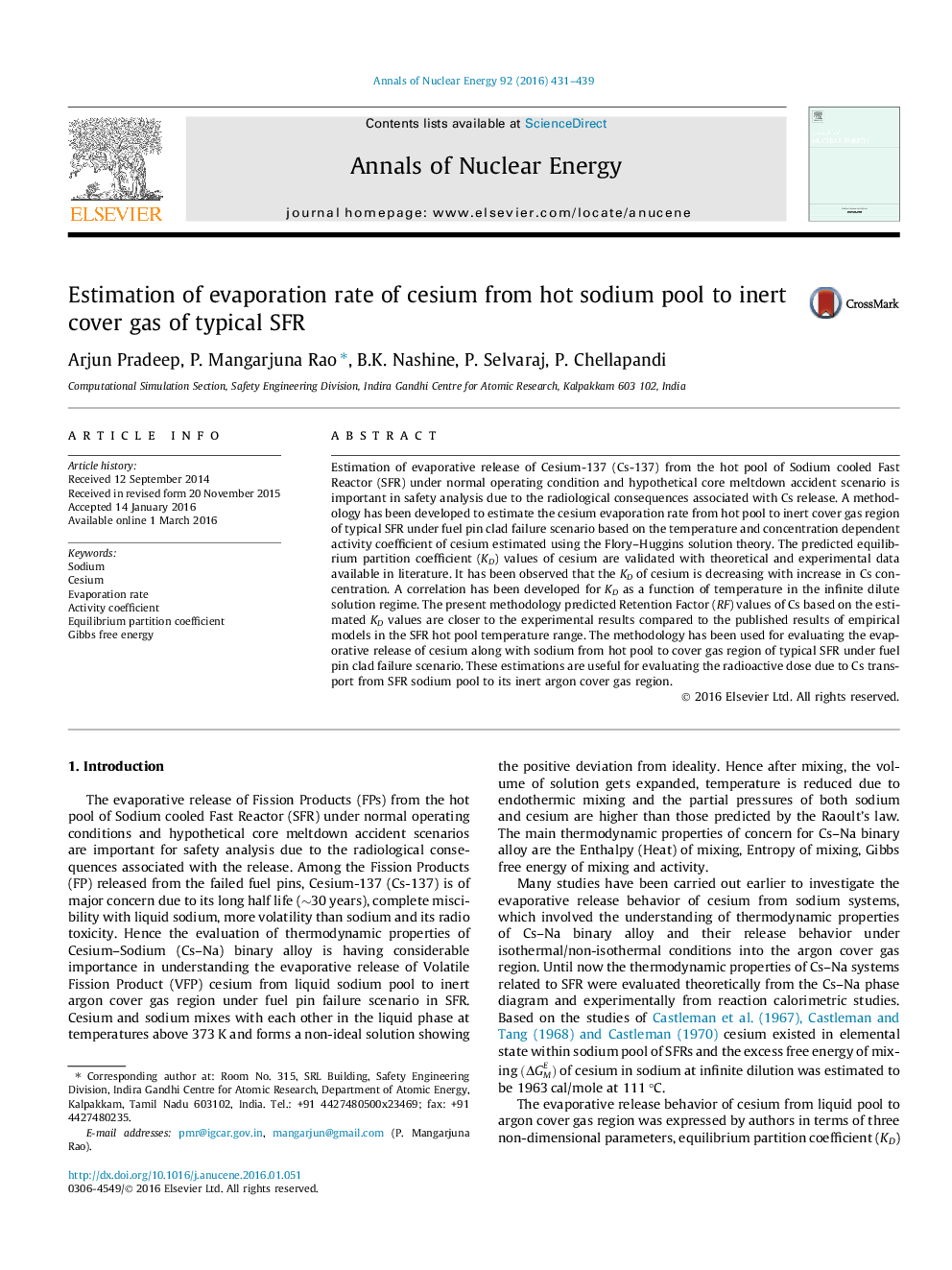| Article ID | Journal | Published Year | Pages | File Type |
|---|---|---|---|---|
| 1727898 | Annals of Nuclear Energy | 2016 | 9 Pages |
•Methodology developed to estimate Cs evaporation rate from hot pool of typical SFR.•Methodology verified for equilibrium partition coefficient of cesium in sodium.•Correlation developed for equilibrium partition coefficient at infinite dilution.•Partition coefficient decreases with increase in hot pool temperature.•Better predictions of Retention Factor for the range of sodium temperatures in SFR.
Estimation of evaporative release of Cesium-137 (Cs-137) from the hot pool of Sodium cooled Fast Reactor (SFR) under normal operating condition and hypothetical core meltdown accident scenario is important in safety analysis due to the radiological consequences associated with Cs release. A methodology has been developed to estimate the cesium evaporation rate from hot pool to inert cover gas region of typical SFR under fuel pin clad failure scenario based on the temperature and concentration dependent activity coefficient of cesium estimated using the Flory–Huggins solution theory. The predicted equilibrium partition coefficient (KD) values of cesium are validated with theoretical and experimental data available in literature. It has been observed that the KD of cesium is decreasing with increase in Cs concentration. A correlation has been developed for KD as a function of temperature in the infinite dilute solution regime. The present methodology predicted Retention Factor (RF) values of Cs based on the estimated KD values are closer to the experimental results compared to the published results of empirical models in the SFR hot pool temperature range. The methodology has been used for evaluating the evaporative release of cesium along with sodium from hot pool to cover gas region of typical SFR under fuel pin clad failure scenario. These estimations are useful for evaluating the radioactive dose due to Cs transport from SFR sodium pool to its inert argon cover gas region.
